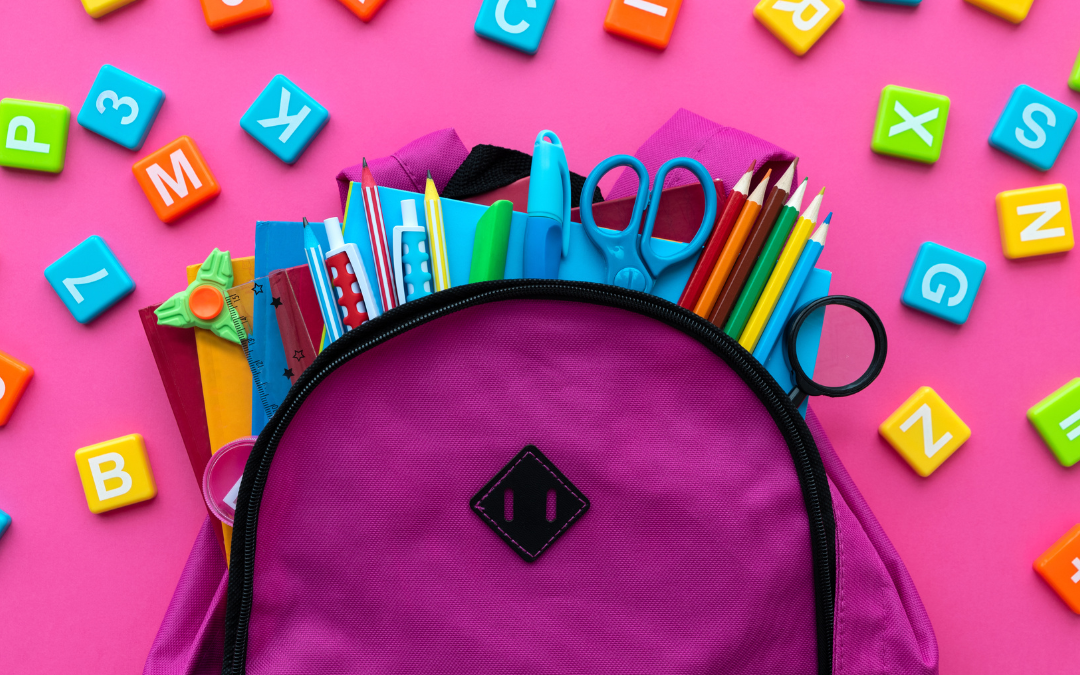It is very important to manage school supplies in a way that ensures children have all they need for their school year. Strategies of organization assist in making everyday schedules smooth, lessening stress and creating readiness for learning at both school and home environments. By setting up useful systems and routines, parents are able to assist their kids’ learning path while also encouraging self-sufficiency when handling school supplies.
Creating a Dedicated Study Area
Giving a specific spot for study in the home offers kids an area that is calm and arranged to do their homework, read, and study. Fill this place with school materials like pencils, pens, rulers and calculators so it can be used efficiently without too many disruptions while promoting focus on tasks at hand. Use storage bins or shelves along with desk organizers to keep supplies arranged well and simple to get to. This arrangement helps kids concentrate on their work and it also teaches them to take care of keeping their working area tidy.
Labeling School Supplies
Daycare Labels or Personalized Tags: Putting strong labels on school supplies can stop them from getting lost and mixed up, particularly in places where many things are kept together like class or school locker. Select waterproof labels to mark lunch boxes, water bottles, and clothes for they make sure that items stay identifiable even if they become wet. Motivate kids to label their own supplies which will teach them important abilities in organization as well as responsibility from a young time period.
Establishing a School Supply Checklist
Make a complete list of school supplies at the beginning of every term to guarantee kids have everything necessary. Look into lists given by the school and suggestions from teachers for needed things like notebooks, folders, art materials or special equipment. Arrange the checklist in groups such as writing tools, stationery and textbooks. Decide which items are essential to buy first. Check the checklist from time to time during the school year. Make sure you have enough supplies and adjust for any changes in requirements.
Streamlining Morning Routines
Make ready all materials for school the evening before. This involves filling up backpacks with completed homework, textbooks and crucial supplies – a move that will help in getting rid of last-minute confusion. Ask kids to select what they want to wear and prepare packed lunches or snacks ahead of time too. Having a morning checklist that is always followed helps to create organization and punctuality. This establishes a good start for the school day.
Organizing Digital Learning Tools
Incorporate digital learning tools into your organizational strategies by effectively managing technology use. For instance, make folders on devices for keeping educational apps, assignments and digital textbooks together. Use parental controls or screen time limits to control entry to non-educational content while studying. Make copies of school documents and tasks on cloud storage or digital platforms for easy access and protection against data loss. Helping kids to develop good digital habits helps with concentrating on their studies, especially in a learning environment that relies heavily on technology. This also strengthens the skills of organization.
Communicating with Teachers
Keep talking with the teachers and school staff to know about what is expected in the classroom and future assignments. Make sure to join meetings or conferences between parents and teachers so you can talk about progress in academics, behavior, as well as any extra supplies or materials that are needed. Work together with your child’s teacher to support and strengthen the organizational skills they learn at school by using similar methods at home too. In a supportive partnership, parents can work together with the school to identify and tackle obstacles, helping their child’s organizational growth in all stages of the school year.
Encouraging Accountability and Responsibility
Encourage children to take responsibility for their school supplies and organization routines by involving them in planning and deciding. Teach how to make schedules, give importance to tasks, and handle time well. Give motivation with positive support for organizing things orderly. Celebrate accomplishments reached by keeping consistent plans ready for use. Teaching responsibility and making students accountable from a young age will help them learn skills for life that can aid in their academic excellence and personal development.
For helping children to do well in their studies and become independent, good arrangement of school supplies is very important. This can be done by making special places for studying, putting labels on things, having checklists and making morning routines simple. Using technology for managing things digitally and keeping in touch with teachers are also helpful. They help to make the organization better both at school and at home when learning online or using gadgets. Parents, by providing regular direction and motivation, help children to show initiative, handle their tasks and succeed in academics as they progress through school life.









